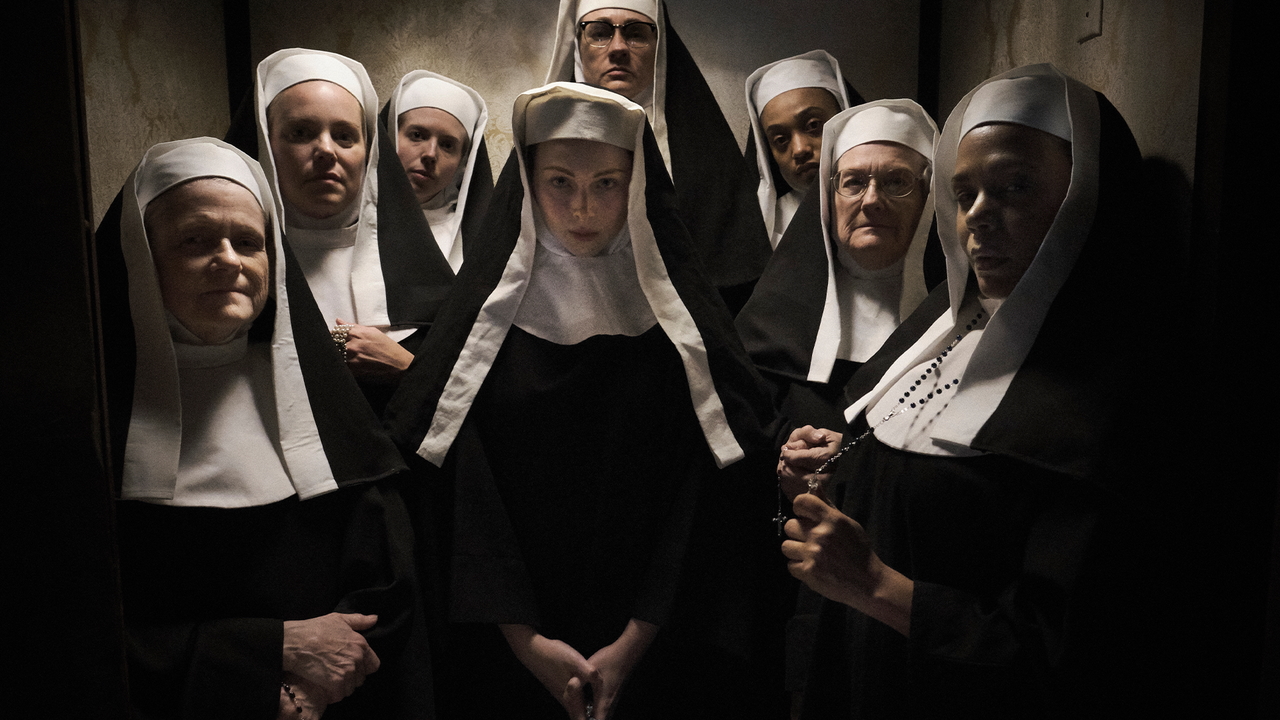
When I saw the poster for Agnes, I was really hoping it was going to be a Nunspolitation film, because man, those need to make a comeback. Spoiler, it isn’t nunsploitation. Anges is a story about a nun who lives in a very secluded convent that starts having violent outbursts leading her sisters to believe that she is possessed. And as much as they would love to deny it, the Church is a sucker for a good possession. It’s the best way to get rid of a priest that is on the outs, or at least that is what decades of exorcism films have taught me. You got a priest that is kind of a troublemaker or maybe they are just really eccentric and no one likes to be around them? Send them to an exorcism. Two birds, one stone.
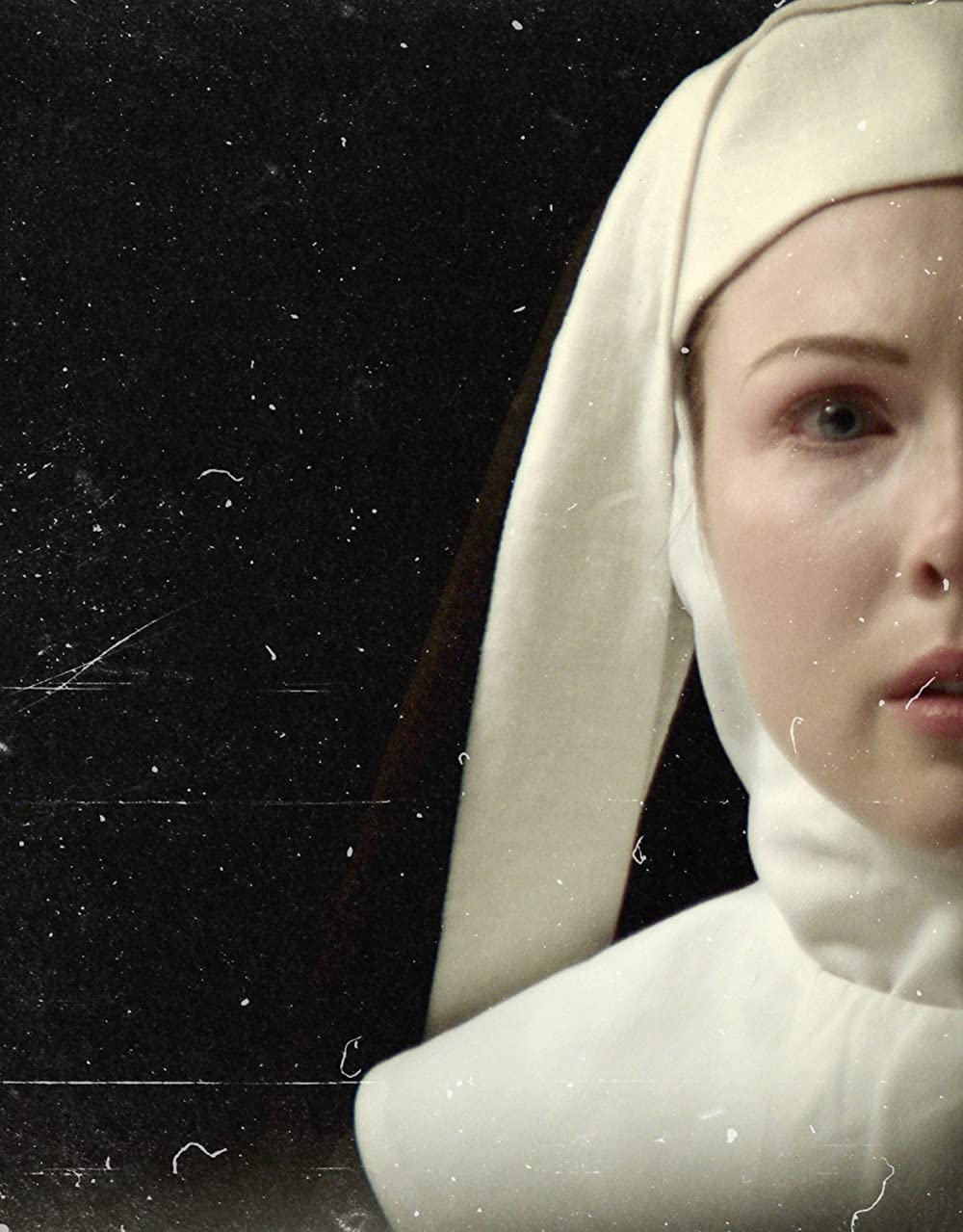
I’ll be honest, I really had to let Agnes sit with me for a couple of days before I could hammer out how I felt about it. It is in no way an edge of your seat, jump scare exorcism film in the vein of The Exorcist or The Conjuring franchise. Instead, this film intends to plant a seed in your mind and let it sit there for a little while, making you ask questions that there really aren’t answers to and that is really the plot. Once the convent reports the potential possession, the Church sends Father Donaghue (Ben Hall), and priest-in-training Benjamin (Jake Horowitz) to investigate. The convent where Sister Agnes lives and serves is rather unique and strict. The mother superior (Mary Buss) really shines here as she is the most disapproving person I have ever seen. It doesn’t matter what the other nuns do, it is never good enough for her. Mary Buss adds a wonderful quirkiness to the role as well. Upon investigation, it turns out that Sister Agnes does seem to be possessed as she is now exhibiting the typical signs of possession such as strung out hair and dark circles under her eyes. When she speaks there is an addition of a demonic voice, but it is never meant to be scary because that isn’t really what this demon’s purpose is.
One of the things that I struggled with after watching Agnes is that we have essentially two separate stories that are tied together through a central theme: doubt. The initial story of the possession is more of a straightforward horror film, as this is where the attempted exorcism takes place. As the film transitions, it moves into drama territory by following Sister Mary (Molly C Quinn), who after the events involving Agnes leaves the church. Mary is now trying to make it on her own, working a low-paying supermarket job and trying to cope with her recent break from the Church. Her story is filled in through brief flashbacks as to what happened and why she left, but it is still rather ambiguous and ultimately left up to the viewer to decide what really happened. In the end, it doesn’t really matter because after Mary spoke with a possessed Agnes at the convent her life changed.
Molly C Quinn delivers a very strong performance, but it is hard to separate her character from the very recent performance of Morfydd Clark as the title character in 2019’s Saint Maud. The two films are extremely different in tone and intention, but the similarity in characters is still palpable. The most striking thing about Quinn and how she portrays Mary is the level of sadness that she brings to the character. There is one brief scene of Mary crying herself to sleep, but during the rest of the film, she just carries a sadness behind her eyes that is really felt more than seen. I just tried to imagine what it would be like to spend that majority of your life in a very protected environment with your beliefs firmly in place, only to have all of that suddenly stripped away. Mary seems to cope with this as well as I would, as she struggles to pay her rent and finds it very difficult to make connections with people in her new life.
Director Mikey Reece is known for his abstract style in filmmaking, often injecting quick cuts of strange and random imagery to bolster his ideas, and that style is definitely present in Agnes, but more so in the first half of the film when a possessed Agnes is starting to infect the minds of the other sisters in the convent. There are some really big ideas, and even bigger questions that Reece is asking here. What is faith? How do you know that something you have believed your whole life is real? What happens when that belief system is suddenly gone and your sense of purpose in life is upended? I’m sure that some people wouldn’t actually consider this horror in the traditional sense, but in the same way that films like Hereditary and Saint Maud plant an idea in your head and let it fester, to me that is much scarier than any jump scare.
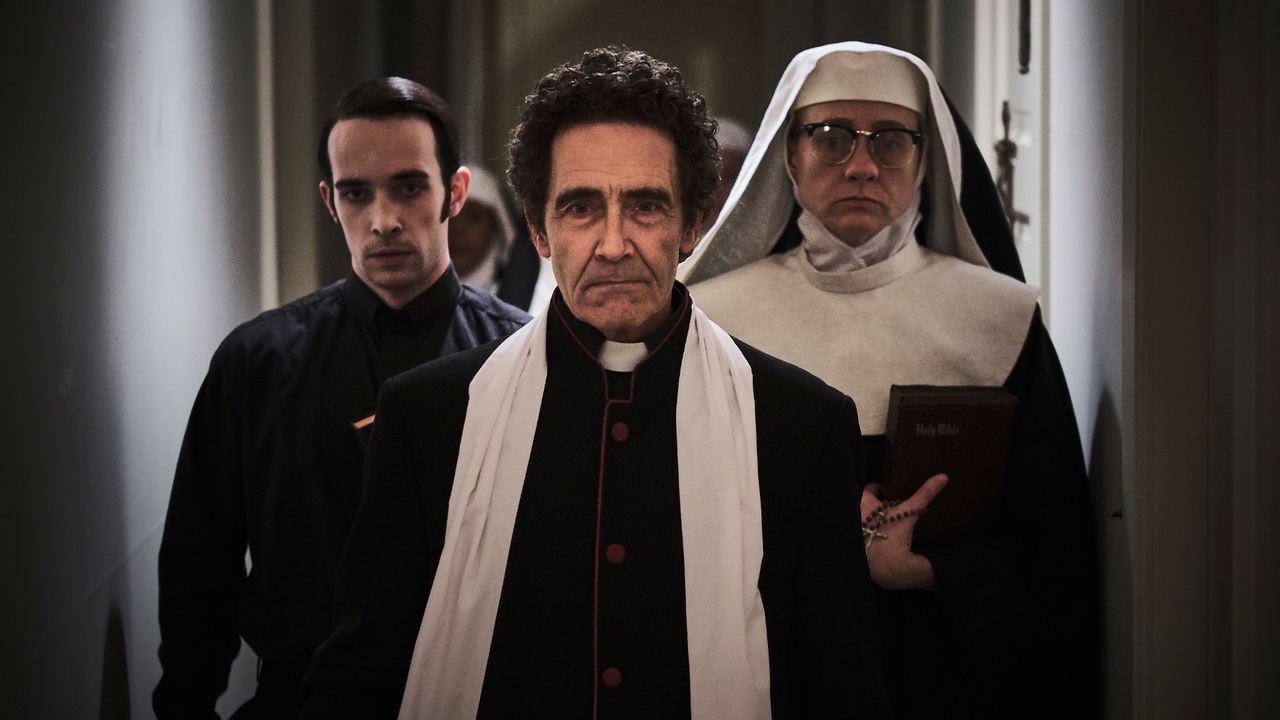
They are really asking some tough questions. It left me feeling conflicted as I liked each half of the movie separately, but I never felt like it came together as a whole. For me, the story of Mary is a more horrifying story, and honestly, I would have liked to have seen that story go deeper and explore those big questions a bit more. We don’t see Mary find her answers, but we aren’t supposed to, because Agnes doesn’t really have that kind of agenda. Instead, it intends to leave the viewer with those same questions to ponder. The experience is bolstered by some really solid performances, as each character felt like they had a rich backstory that added a depth that is not often present with side characters, and visually the film is shot in the same bold style that Reece is regularly known for.
Agnes will definitely find its place amongst fans of slow-burn films, and will likely be included in many conversations about “elevated horror”, but for those seeking a thrilling exorcism movie like the blurbs online state will wind up disappointed. If you feel like going deep and asking yourself some tough philosophical questions then Agnes will be a good fit.
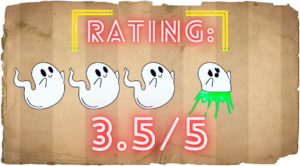
Agnes was screened as part of the 2021 Fantastic Fest.
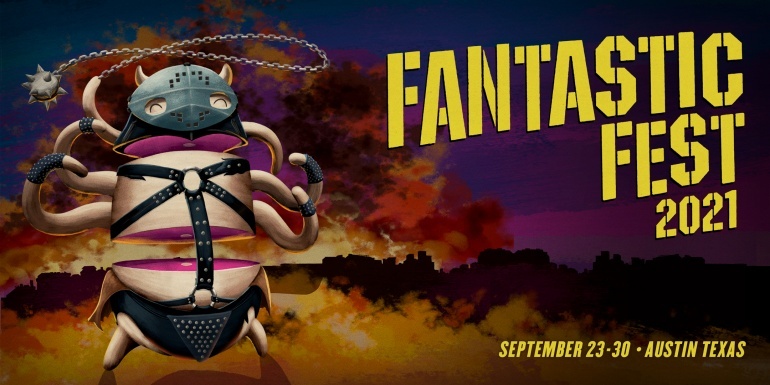
More Festival Coverage
The Sadness has been a film making some early commotion due to an extreme and graphic nature – a new angle on the zombie genre in the age of our… Mr. Crocket is a 2024 American period horror, written and directed by Brandon Espy with additional writing by Carl Reid. Brandon is mostly known as the writer/director of many short… “My name is Roxy, but the village girls call me toxic” After explaining how womankind found themselves alone in the land known as ‘After Blue’, we meet Roxy whose introduction… The Glenarma Tapes is a 2023 Northern Irish found footage horror film, written and directed by Tony Devlin with additional writing from Paul Kennedy. Although the film presents itself as… There have been many horror films that tackle the theme of trauma in recent years, but this one really pushes things a bit further. Traumatika is a 2024 horror film… Running a ride share for some extra money at Christmas, time goes awry for Russell when he picks up the mysterious and frenetic Charlotte. The misadventures which follow turn increasingly…The Sadness Film Review – What The F*** Did I Just Watch!?
Mr. Crocket (2024) Film Review – Demented Fun for All the Family [Fantastic Fest]
After Blue (Dirty Paradise) Film Review – An Erotic, Sci-fi, Coming of Age Tale
The Glenarma Tapes (2023) Film Review- Into the Woods! [FrightFest]
Traumatika (2024) Film Review – Trauma is a Disease [Frightfest]
Night Drive (2019) – The Gig Economy Sucks
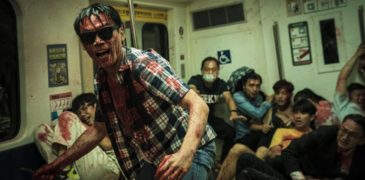
![Mr. Crocket (2024) Film Review – Demented Fun for All the Family [Fantastic Fest]](https://www.grimoireofhorror.com/wp-content/uploads/2024/09/Mr.-Crocket-2024-cover-365x180.jpg)

![The Glenarma Tapes (2023) Film Review- Into the Woods! [FrightFest]](https://www.grimoireofhorror.com/wp-content/uploads/2023/08/The-Glenrama-Tapes10-365x180.jpg)
![Traumatika (2024) Film Review – Trauma is a Disease [Frightfest]](https://www.grimoireofhorror.com/wp-content/uploads/2024/07/Screenshot-2024-07-29-5.24.09-AM-365x180.png)
